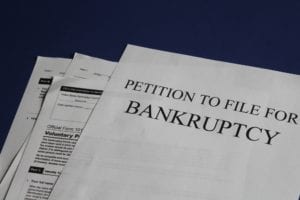When it comes to filing bankruptcy, a lot of questions come up. There are many things you should know about bankruptcy before determining if it is the right course of action for you. For instance, what types of bankruptcy are there? What are the requirements? What is chapter 13 bankruptcy? An experienced chapter 13 bankruptcy attorney can help answer this question.
What Is Bankruptcy?
What happens when debts pile up and a business or individual can no longer pay them? There are plenty of horror stories out there about bankruptcy which add to the unfair stigma surrounding it. While it does harm your credit, bankruptcy is meant to help you lead a better life and get a fresh start.
Bankruptcy offers the potential to pay off your debts and offers creditors the chance to collect those debts. It is a legal process handled in a federal court by a designated bankruptcy judge.A judge must deem you eligible before you are permitted to file. There is a certain code that the courts follow in the USA. You can learn more about this code here. As mentioned before, while it gives the individual filing the chance for a new, fresh start free from debts, it does stay on your credit for a number of years which can make it difficult to do things such as get a loan, buy a car, or buy a house.

Bankruptcy involves something called liquidation. Liquidation is when a person or businesses’ assets are sold off and are distributed to the appropriate parties (i.e. creditors). If a business faces bankruptcy and liquidation, it no longer exists. While not all forms of bankruptcy require this process, it is important to speak with a bankruptcy attorney to determine if this is part of the process you will be facing.
What Is Chapter 13 Bankruptcy?
This plan is also known as the “wage earner’s plan.” Chapter 13 is a specific type of bankruptcy that is meant for individuals who make a higher level of income than other people filing bankruptcy. This is when income is not an immediate issue, but the creditors’ demand for immediate repayment is overwhelming. While Chapter 13 can involve liquidation, it is usually an opportunity to avoid it. Where in many forms of bankruptcy, you may lose your home or vehicle, Chapter 13 provides an opportunity to keep one or both of these things. (You must be able to afford the mortgage, however.)
While you can request certain debts be forgiven in this type of bankruptcy, that is not the main goal of Chapter 13. Chapter 13 is meant to help you create a repayment plan between 3-5 years, no more than 5 years, however. All income, minus that spent on necessities, must be put towards paying off debts. Working with a Chapter 13 bankruptcy attorney, the courts, and a court-appointed trustee, you will come up with a repayment plan mapping out which plans will be forgiven and which ones need to be paid off, all while protecting certain assets. Chapter 13 can prevent foreclosure of your home in certain cases. There are certain debts that cannot be forgiven…
- Student Loans
- Unpaid Taxes
- Alimony
- Child Support
Once the plan is approved by the courts, you will work with the trustee over the next 3-5 years to pay on your debts until all have been resolved. You do not have to directly communicate with any creditors, as that is what the trustee is for. They make the payments for you using your finances. If it looks as though you will not be able to complete your repayment plan on time due to a loss or reduction of income, you must communicate this to your trustee so that you can work together to get a modification of the agreement.
Chapter 13 bankruptcy is a way to maintain some sort of normalcy during a difficult time, unlike other forms of bankruptcy which can require a complete liquidation of assets. If you have questions about whether Chapter 13 is right for you or need help filing, contact Mark Schottler. He’s a Chapter 13 bankruptcy attorney in the Chicagoland area. You can set up a free 30-minute consultation here.

